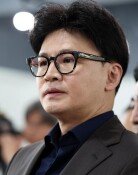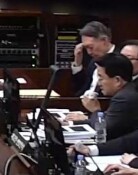Red Guards School
Students in China were the first to take to the streets in the 1966 Cultural Revolution after being exhorted by Mao Zedong, who ordered them to protest conventional authority. Organized groups seeking revolution sprang up en masse like wildfire. Liu Qing, a middle school student who sought social justice and recognition of class conflict, criticized the ideological orientation of a teacher who returned to China after studying in Japan. He also drove out a professor and his friend`s father, labeling the professor the enemy of the populists. Classrooms devoid of teachers and classes were taken over by clubs such as the Struggle Group of the Great Wall of China, and Fearless Red Revolutionary Troops. Young students aged just around 10 were called Red Guards.
Liu is now a businessman who operates plants in China`s Guangdong Province and Malaysia. All he recalls about the Cultural Revolution is regret for a lost decade. When he canceled a planned investment in Pyeongtaek, Gyeonggi Province, of Korea under the Roh Moo-hyun administration in 2006, he said, "Whenever I come here, I see protests by students and workers. A Cultural Revolution is seemingly unfolding in Korea.
Kwak Noh-hyun, the superintendent of the Seoul Metropolitan Office of Education, said he will establish a city education committee for student participation to ensure institutional and organized participation in setting educational policies. To help students develop into democratic citizens of the 21st century, he proposed that self-regulatory activities among students must be promoted. The committee is highly likely to include as members children such as the middle school girl who demanded nullification of general educational performance tests at Kwaks inauguration ceremony. She was recommended as a student representative by the progressive Korea Teachers and Educational Workers Union. Kwak is poised to reinstate participatory democracy, a campaign which used to be led by the late left-leaning President Roh.
Kwak is unqualified to be an educational superintendent if he fails to realize that the Chinese characters for student literally mean "life of learning." It is for this reason that suffrage is not granted to a person under age 19. The age at which someone can vote differs from nation to nation, but no country allows an elementary school student to vote. If Kwak does not recognize that educational policy requires professionalism and the capacity to judge, he is all the more unfit to serve as Seoul educational superintendent. Why is Kwak pushing for left-leaning educational policies that effectively deprive teachers of a competent teaching method by banning corporal punishment, turning schools into venues of political struggle through an ordinance for student human rights, and converting students into political allies through the Education Committee for Students Participation? Kim Jeong-rae, a professor at Busan National University of Education, said, The moves are attempts to dismantle conventional education policy and authority and destroy the social foundation of Korean society. What are Kwak`s goals given his plan to turn students into protesting Red Guards as well as his support for the left-leaning teachers union?
Editorial Writer Kim Sun-deok {yuri@donga.com}



![[단독]김경 “1억원 줄때, 강선우도 함께 있었다” 자수서](https://dimg.donga.com/c/138/175/90/1/wps/NEWS/IMAGE/2026/01/14/133148772.5.jpg)

![반찬통 착색 고민 끝…‘두부용기’ 버리지 말고 이렇게 쓰세요 [알쓸톡]](https://dimg.donga.com/c/138/175/90/1/wps/NEWS/IMAGE/2026/01/09/133126593.3.png)

